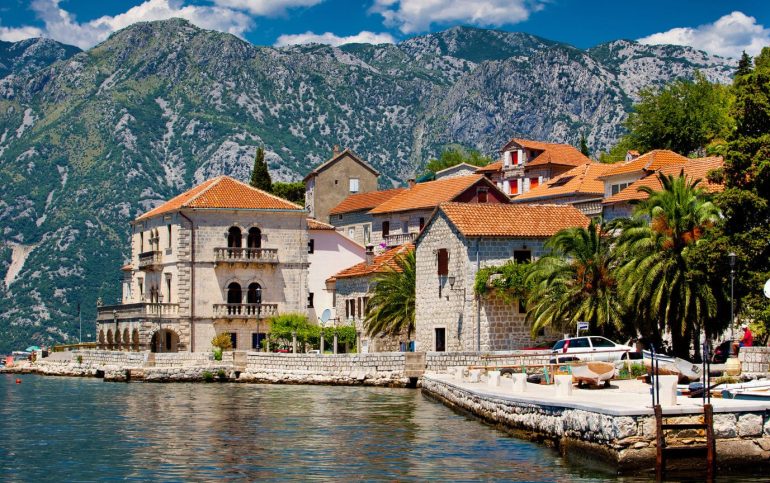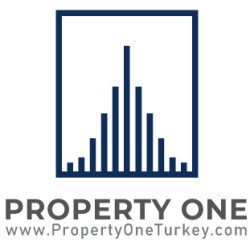A rising star in the Balkans, Montenegro continues to attract the attention of world-renowned figures as well as many foreign investors, including Turks.
Turks have been particularly interested in the residential property market in the country, and they come second in Montenegro’s foreign residential sales with 15.1 million euros ($16.54 million), a 22-fold increase in the last three years, according to data from the Central Bank of Montenegro on Friday.
While until about seven years ago foreign residential sales in the small Balkan state were scarce, they have made rapid progress in a short time.

Last year, Russians took the lead in Montenegro’s residential investments with 39 million euros. Serbs ranked third as they purchased 14.5 million euros worth of real estate. Others include Switzerland, the United States, Germany, Austria, Sweden and the United Arab Emirates (UAE). In 2015, Montenegro received 141 million euros in real estate investment from nearly 50 countries, increasing the figure to 185 million euros in 2018 and some 100 million euros in the first half of this year alone.
While Turkish investors did not prefer the country on the Adriatic Sea for residential purchases until 2015, the Balkan country has seen a rapid upward change in this field, particularly in the last three years. Turks, whose housing purchases in Montenegro were zero in 2015, invested 680,000 euros in 2016, 6.8 million euros in 2017, and 15 million euros in 2018 in real estate. Thus, their investment in Montenegro’s real estate market showed a 22-fold increase in three years, surging by 2,015%.
Its NATO membership in 2017 and the fact that it is a Balkan country moving forward on the way to the EU have made Montenegro a center of attraction, said Turkish Ambassador to Podgorica Songül Ozan. Noting Turks’ rising interest in the country’s real estate market in recent years, Ozan said, “Although we do not have official data with definite figures, it is known that many of our citizens have increased interest in Montenegro’s real estate market for investment and tourism purposes.”
“Residential purchases that most of our citizens make in the coastal regions and the capital Podgorica also point to this fact,” she told Anadolu Agency (AA).
In addition to personal investments like housing, Ozan noted that Turkish businesspeople are making investments that shape the economic relations between the two countries in many sectors.
“Our citizens realize the opportunities offered by this wonderful and friendly country. Construction, tourism, industry, textiles and furniture are among the sectors that receive investment,” she said.
Since Turks invested and created employment in many fields in Montenegro, such as the manufacturing industry, steel, furniture and construction, Ozan indicated that they expect more factory investments to contribute to employment in five years and the medium term.
Ozan said that there is ongoing factory investment with feasibility studies and that they wish Turkish capital to provide more employment in Montenegro.
The ambassador added that Turkish public lender Ziraat Bank, which operates three branches in Montenegro, is among the most active and important banks in the country and plays an essential role in the financial sector. “THY [Turkish Airlines], with two daily flights to Montenegro, is preferred by Montenegrins not just on flights to Turkey but on connecting flights via Istanbul to the whole world,” she added.
In the first seven months of this year, the trade volume between the two countries increased by 51.4% compared to the same period of 2018 and reached $82.4 million, the ambassador said.
With 53.2 million euros in 2018 alone, Turkey ranked fifth among foreign countries investing in Montenegro, Ozan added, noting the increasing number of Turkish tourists coming to Montenegro.
Montenegro has holiday opportunities all four seasons, adding that the country offers serious opportunities for Turkish tourism investors, she noted.
Serkan Şahin, the co-founder of Mirnadom, a Turkish company that realizes real estate projects in Montenegro, added that Turks came second in Montenegro’s foreign residential sales last year.
“As of this year, we expect Gulf capital to be Russia and Turkey’s biggest competitor. The interest of Turks in housing investment in Montenegro will continue to increase,” Şahin noted. Montenegro’s integration into the EU would begin in three years, Şahin said, adding that this situation greatly increased investor interest as well.





